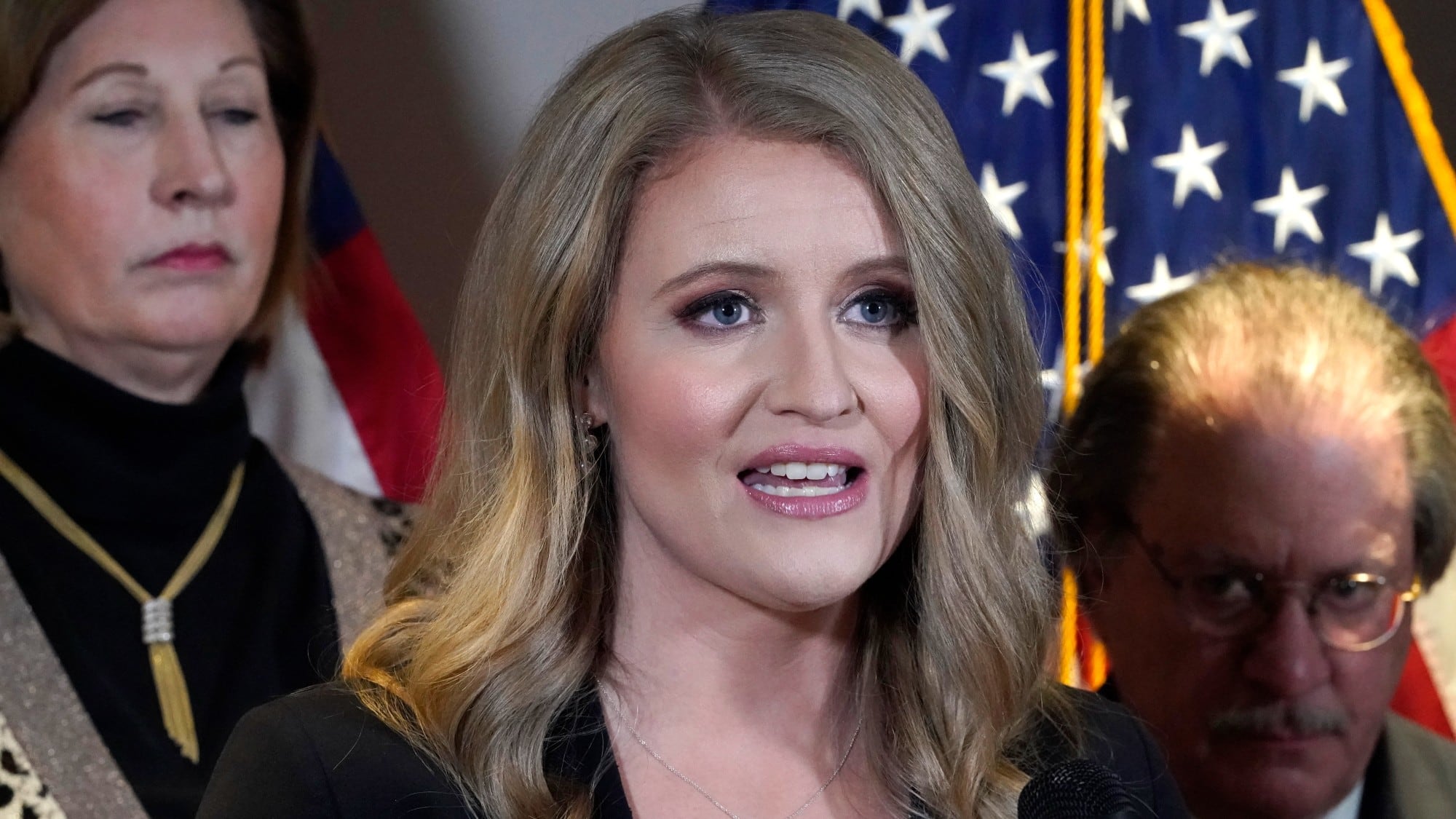By Will Weissert and Kate Brumback
Jenna Ellis, an attorney and prominent conservative media figure, reached a deal with prosecutors Tuesday and pleaded guilty to a reduced charge over efforts to overturn Donald Trump’s 2020 election loss in Georgia.
Ellis, the fourth defendant in the case to enter into a plea deal, was a vocal part of Trump's reelection campaign in the last presidential cycle and was charged alongside the Republican former president and 17 others with violating the state’s anti-racketeering law.
Ellis pleaded guilty to a felony count of aiding and abetting false statements and writings. She had been facing charges of violating Georgia’s Racketeer Influenced and Corrupt Organizations Act and soliciting the violation of oath by a public officer.
She rose to speak after pleading guilty, fighting back tears as she said she would have not have represented Trump after the 2020 election if she knew then what she knows now, claiming that she she relied on lawyers with much more experience than her and failed to verify that the things they told her were true. She said she looks back on the experience with “deep remorse.”
“What I did not do but should have done, your honor, was to make sure that the facts the other lawyers alleged to be true were in fact true,” the 38-year-old Ellis said.
The guilty plea from Ellis comes just days after two other defendants, fellow attorneys Sidney Powell and Kenneth Chesebro, entered guilty pleas. That means three high-profile people responsible for pushing baseless legal challenges to Democrat Joe Biden's 2020 election victory have agreed to accept responsibility for their roles rather than take their chances before a jury.
She was sentenced to five years of probation along with $5,000 in restitution, 100 hours of community service, writing an apology letter to the people of Georgia and testifying truthfully in trials related to this case.
The early pleas and the favorable punishment — probation rather than jail — could foreshadow similar outcomes for additional defendants who may see an admission of guilt and cooperation as their best hope for leniency. Even so, their value as witnesses against Trump is unclear given that their direct participation in unfounded schemes will no doubt expose them to attacks on their credibility and bruising cross-examinations should they testify.
The indictment in the sweeping case details a number of accusations against Ellis, including that she helped author plans on how to disrupt and delay congressional certification of the 2020 election’s results on Jan. 6, 2021, the day a mob of Trump supporters eventually overran the U.S. Capitol.
Ellis is also accused of urging state legislators to unlawfully appoint a set of presidential electors loyal to Trump at a hearing in Pennsylvania, and she later appeared with some of those lawmakers and Trump at a meeting on the topic at the White House. The indictment further says she similarly pushed state lawmakers to back false, pro-Trump electors in Georgia as well as Arizona and Michigan.
Before her plea, Ellis, who lives in Florida, was defiant, posting in August on X, the social media platform formerly known as Twitter, “The Democrats and the Fulton County DA are criminalizing the practice of law. I am resolved to trust the Lord.”
But she has been more critical of Trump since then, saying on conservative radio in September that she wouldn't vote for him again, citing his “malignant, narcissistic tendency to simply say that he's never done anything wrong."
Along with former New York Mayor Rudy Giuliani, Ellis was a leading voice in the Trump campaign's efforts to overturn the 2020 election, appearing frequently on television and conservative media to tell lies about widespread fraud that did not occur and spread misinformation and conspiracy theories.
She was censured in Colorado in March after admitting she made repeated false statements about the 2020 election.
That punishment was due in part to a Nov. 20, 2020, appearance on Newsmax, during which she said, "With all those states (Nevada, Michigan, Pennsylvania, Wisconsin and Georgia) combined we know that the election was stolen from President Trump, and we can prove that.”
Powell pleaded guilty to six misdemeanors accusing her of conspiring to intentionally interfere with the performance of election duties. Powell will serve six years of probation, will be fined $6,000 and has to write an apology letter to Georgia and its residents.
Chesebro pleaded guilty to one felony charge of conspiracy to commit filing false documents just as jury selection was getting underway in his trial. He was sentenced to five years probation and 100 hours of community service and was ordered to pay $5,000 in restitution, write an apology letter to Georgia’s residents and testify truthfully at any related future trial.
A lower-profile defendant in the case, bail bondsman Scott Graham Hall, pleaded guilty last month to five misdemeanor charges. He was sentenced to five years of probation and agreed to testify in further proceedings.
Trump and the other defendants, including his White House chief of staff Mark Meadows, have pleaded not guilty.
Weissert reported from Washington. Associated Press writer Eric Tucker in Washington contributed to this report.









